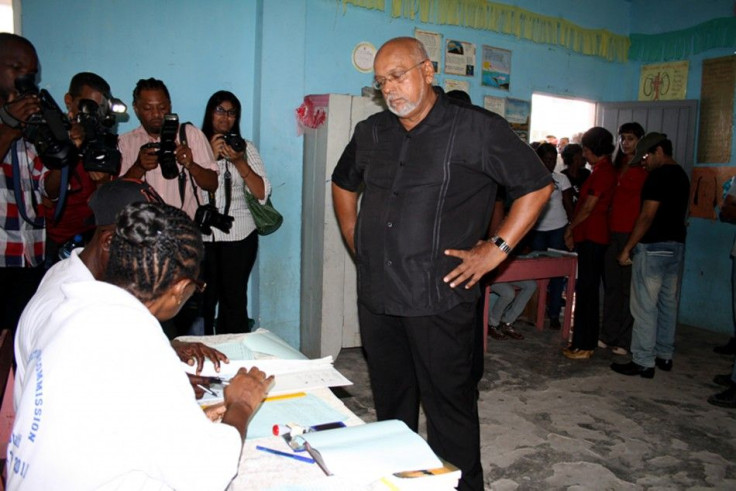Guyana Elections Expected to Break Down According to Racial Lines

About half-a-million people in the South American nation of Guyana are going to the polls on Monday to choose a new President and members of parliament.
Reflecting the country’s demographics of Africans and East Indians, Guyanese politics typically break down according to racial lines.
The ruling People's Progressive Party/Civic (PPP/C), which has been in power since 1992, is facing a coalition of opposition groups which includes the PPP’s principal rival, the People's National Congress (PNC).
PPP/C is dominated by Guyanese of Indian descent, while PNC is largely the party of those of black African descent.
The PPP/C’s candidate, Donald Ramotar, held rallies in rural agricultural areas dominated by Indo-Guyanese.
Land of bauxite, rice and sugar! Say yeah! Ramotar, 61, told a crowd in the town of Anna Regina.
PPP/C is widely expected to win the election, mostly because Indians outnumber blacks in Guyana.
Ramotar’s biggest challenge is a party called A Partnership for National Unity (APNU), which includes the PNC and smaller parties typically dominated by Afro-Guyanese. APNU’s candidate is David Granger, a former military commander.
However, a new political party, The Alliance for Change (AFC), is seeking to break the traditional dominance of the PPP/C and PNC.
Khemraj Ramjattan, the AFC’s presidential candidate, said at a recent political debate in the capital city of Georgetown: Reason, not race. We've voted along ethnic lines for too long.
Under Guyana’s parliamentary system, the party with the majority places its candidate as the president.
PPP/C has been credited with pulling Guyana up from the economic chaos in the 1980s and engineering a more stabilized nation with an economy that is growing.
The country’s GDP is expected to expand by 4.5 percent in 2011 and 4.0 percent in 2012, following a 3.6 percent increase in 2010
Former President Bharrat Jagdeo (who is barred from running for a third term) was also praised for building schools, hospitals and improving the nation’s infrastructure.
The Latin America Monitor commented: “Jagdeo’s sound macroeconomic management and astute diplomacy are boosting Guyana’s prominence…[but the country still suffers from] structural issues ranging from wide ethnic divisions to a relatively weak constitutional framework.”
Guyana is also facing an upsurge in drug-related crime and violence.
Moreover, despite the improving economy and the country’s mineral riches, many Guyanese remain stuck in poverty, while politicians are regarded as corrupt.
Granger has criticized Jagdeo for failing to get a handle on crime and the growing drug trade that crosses through Guyana.
Jagdeo leaves office with a legacy of failing to bring crimes under control, he told Reuters. We intend to stop crime, gun running and money laundering.
Nonetheless, Indian housewife Geeta Kuldip told Reuters: Words can't express what the PPP has done for Guyana. When I was a little girl we had to line up for food. Now I can go to the supermarket and buy anything I want.
Racial enmity and violence between the predominant Indian and African groups have characterized Guyana’s political history. In 2001, following the victory of Jagdeo, street clashes erupted with sporadic violence lasting for weeks.
According to Reuters, when Ramotar turned up at a polling station to vote, the largely black crowd shouted and jeered at him.
I think the PPP will win this election in a big way, he said, despite the anger surrounding him.
We've done a lot of work so I'm very confident.
Tristan Mohabir, a research associate at the Council on Hemispheric Affairs wrote in a recent report: Regardless of who wins the elections, the next Guyanese president must focus on changing the same old story - managing the tide of racial division.”
© Copyright IBTimes 2024. All rights reserved.




















